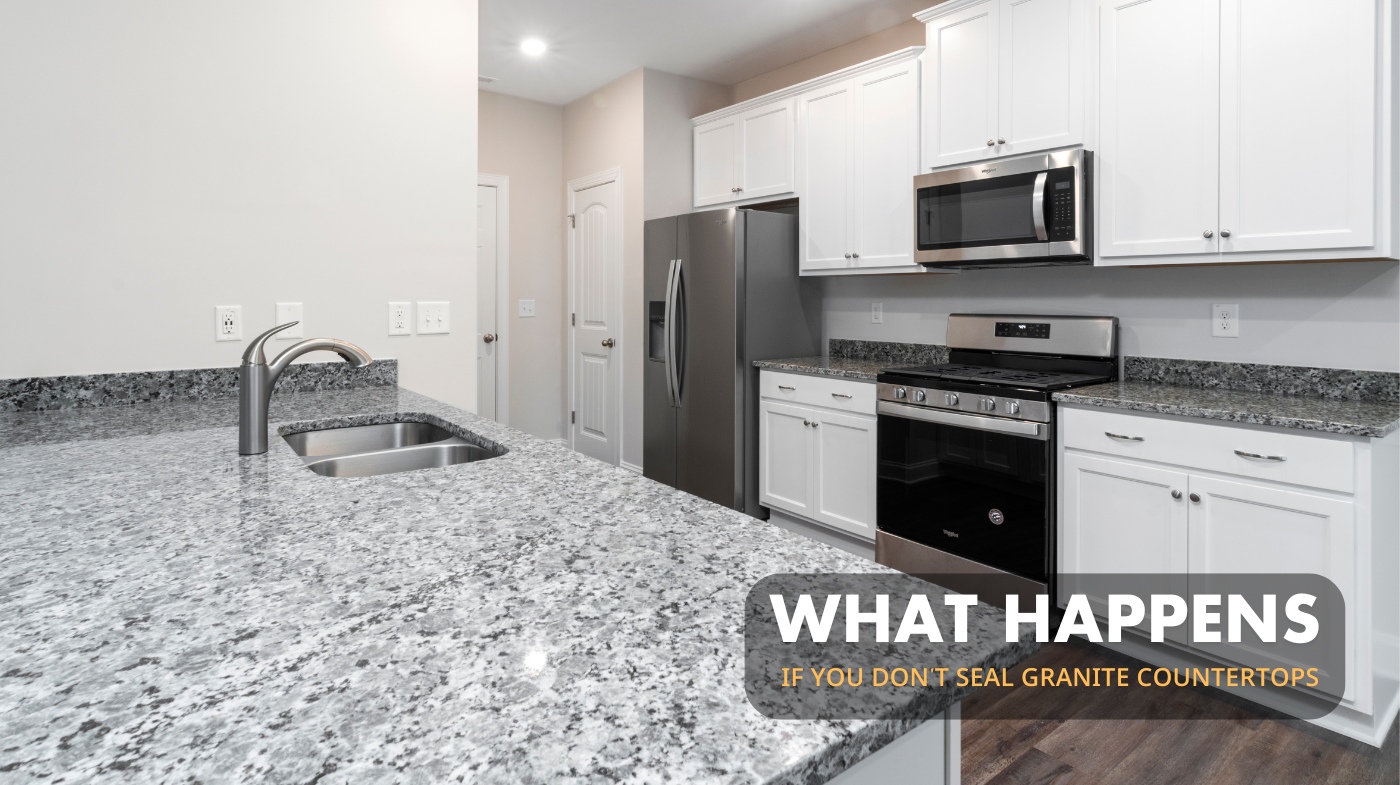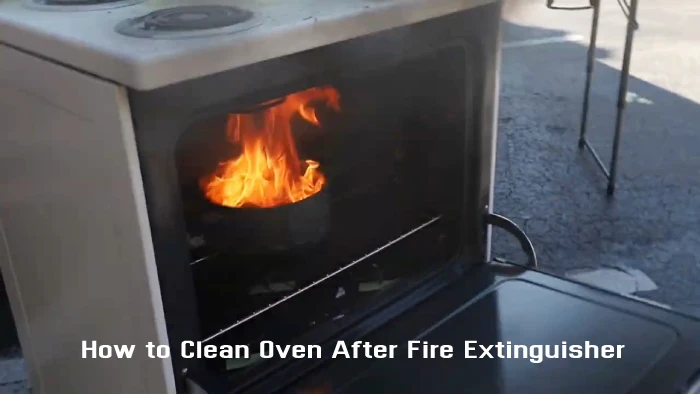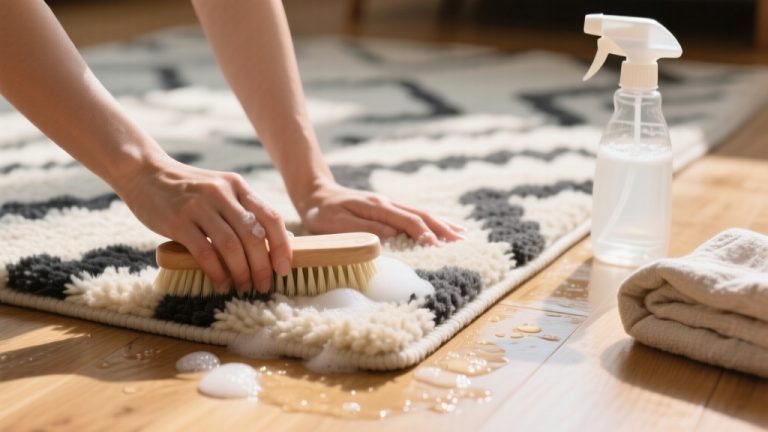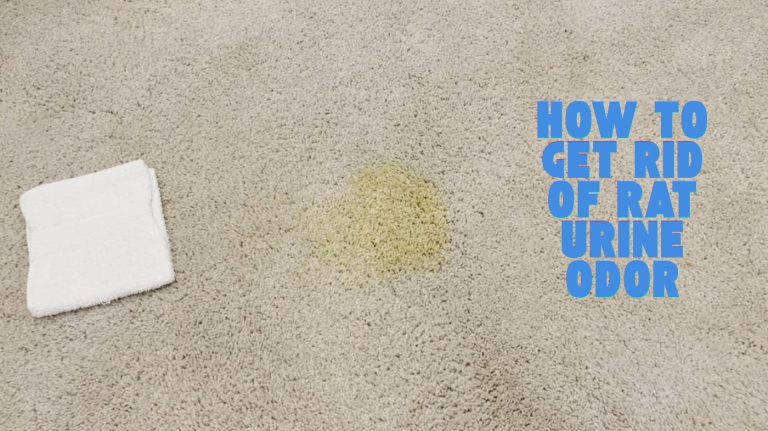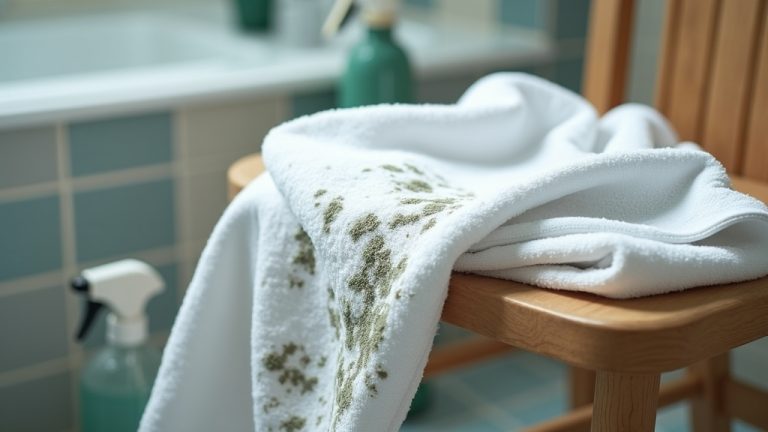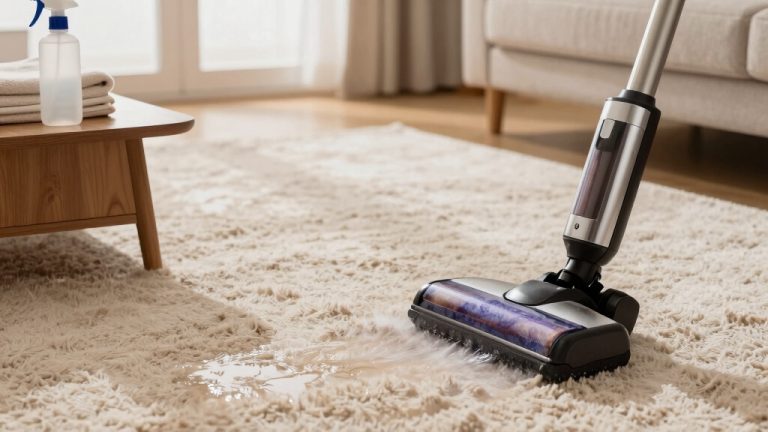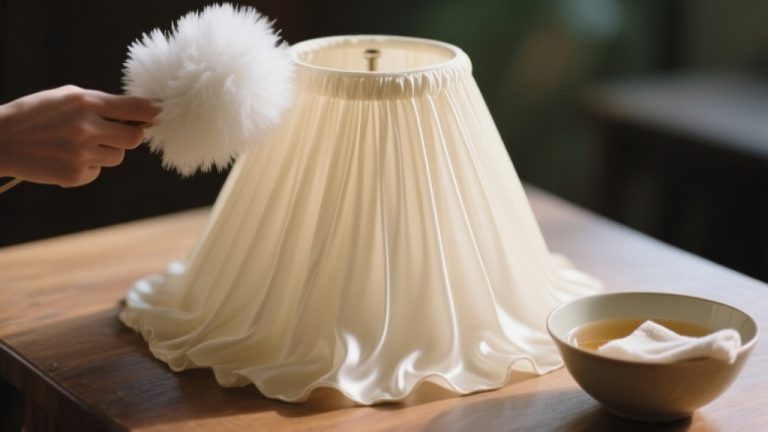What Happens If You Don’t Seal Granite Countertops?
If you don’t seal your granite countertops, liquids and oils will penetrate its pores, causing stubborn stains and discoloration.
Acidic substances like lemon juice can etch and dull the surface, while water absorption may lead to dark spots and even structural damage over time.
Cleaning becomes tougher as harsh products can scratch or degrade the unprotected stone. These issues reduce both the aesthetic appeal and durability of your granite. Discover how proper sealing preserves your countertop’s longevity and look.
Key Takeaways
- Unsealed granite absorbs liquids, leading to stains from food, drinks, and oils that are difficult to remove.
- Exposure to acidic substances causes etching and dull spots on unsealed granite surfaces.
- Water absorption in unsealed granite promotes darkening, cracks, and structural damage over time.
- Using harsh or abrasive cleaners on unsealed granite increases surface damage and accelerates wear.
- Lack of sealing results in loss of shine, making the countertop appear dull and worn quickly.
Staining Risks From Food and Liquid Exposure
Although granite is a durable natural stone, it remains vulnerable to staining when exposed to certain foods and liquids, especially if unsealed.
Acidic substances like wine, lemon juice, and vinegar can etch granite’s polished surface by dissolving calcium carbonate, producing dull spots or roughness, particularly visible on darker stones.
Acidic liquids like wine and lemon juice can etch granite, causing dullness and rough patches, especially on dark stones.
Oils, butter, and grease penetrate unsealed granite pores, causing darkening and discoloration over time.
Pigmented foods such as berries and beets, or ink, quickly absorb into unsealed granite, leaving stubborn stains.
Beverages containing sugars or tannins, like coffee and juice, also discolor granite if not promptly cleaned.
Harsh acidic or abrasive cleaners exacerbate damage by etching and scratching the surface, reducing stain resistance.
Because granite has tiny holes called pores that can trap liquids, it is especially important to clean up spills quickly. Using coasters, immediate spill cleanup, pH-neutral cleaning, and annual sealing are essential to prevent permanent staining.
Water Absorption and Resulting Damage
Because granite is naturally porous, it can absorb water through microscopic holes within its structure. This absorption can range from 0.01% to 0.8%, depending on the granite’s quality and treatment.
Granite is a natural stone and can be somewhat porous, which is why sealing is essential to protect against stains and liquids.
Untreated granite typically exceeds the industry standard of 0.4%, making it prone to water infiltration. When water penetrates, it causes localized darkening and persistent stains, especially with standing moisture.
Over time, repeated wetting and drying expand water in pores, potentially weakening the stone’s structural integrity and promoting cracks. Additionally, trapped moisture can foster microbial growth and mineral deposits, further degrading the surface.
Proper sealing fills these pores, drastically reducing water absorption and preventing such damage. Without sealing, you risk costly deterioration, discoloration, and compromised durability, emphasizing the necessity of regular sealing to maintain your granite’s longevity.
Increased Susceptibility to Cleaning Product Harm
When granite countertops lack proper sealing, cleaning products can inflict significant damage to their surface.
Unsealed granite is vulnerable to acidic cleaners, chemical agents, and abrasive materials, which can compromise its integrity and appearance. It is important to recognize that the selection of cleaning products plays a crucial role in granite preservation.
Unsealed granite countertops are easily damaged by acidic, chemical, and abrasive cleaning products, risking their durability and look.
You must avoid harsh cleaning substances to maintain your countertop’s durability.
Key risks include:
- Acidic products like vinegar and citrus-based cleaners erode and degrade the granite surface.
- Chemical agents such as ammonia, bleach, and glass cleaners weaken the seal, increasing porosity.
- Abrasive cleaners and rough sponges scratch and roughen the unsealed surface.
- Chemicals can cause discoloration by penetrating the porous granite, altering its finish.
To protect your investment, use gentle, non-abrasive cleaners and reseal surfaces regularly.
Gradual Loss of Shine and Surface Deterioration
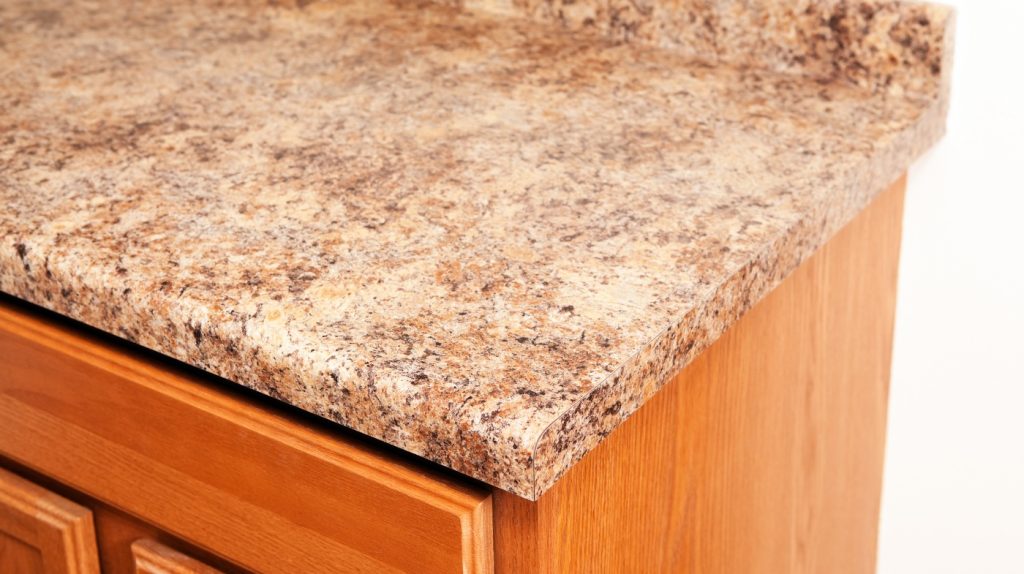
If you don’t seal your granite countertops properly, you’ll notice a gradual loss of their natural shine and an increase in surface deterioration.
Unsealed granite absorbs liquids and acids, causing dullness and etching that degrade its reflective quality. This porous surface also allows water infiltration, risking cracks and structural damage over time.
Daily exposure to spills and abrasive contact accelerates these effects, reducing durability and aesthetic appeal.
| Effect | Cause |
|---|---|
| Loss of shine | Absorption of substances |
| Surface etching | Acidic exposure |
| Structural cracks | Water infiltration and freezing |
Sealing granite forms a protective barrier, preserving its smooth, glossy finish and structural integrity. Without it, you’ll face accelerated wear and costly repairs.
Challenges in Maintenance and Stain Removal
Neglecting to seal your granite countertops not only diminishes their shine and structural integrity but also creates ongoing challenges in maintenance and stain removal.
Unsealed granite’s increased porosity allows liquids and oils to penetrate deeply, making stains tougher to eliminate.
Daily cleaning becomes more demanding, as soap scum buildup and residue complicate upkeep. Many homeowners prefer low-maintenance granite varieties to avoid frequent sealing.
You must act quickly to address spills; otherwise, stains risk becoming permanent, and harsh chemicals used for removal may damage the surface.
Key maintenance challenges include:
- Increased risk of deep-seated stains due to liquid absorption.
- Difficulty in cleaning and residue buildup.
- Necessity for specialized stone-safe cleaning products.
- Heightened risk of permanent damage if stains aren’t promptly treated.
Understanding When Sealing Is Not Necessary
Although sealing granite countertops is generally recommended to protect against stains and damage, certain types of granite and specific conditions make sealing unnecessary.
Some granites have low porosity, naturally resisting liquid absorption; dense varieties can take over 30 minutes to darken when tested with water, signaling no need for sealant.
Additionally, factory-sealed granite arrives with long-lasting protection, often up to 15 years, making resealing redundant until the seal degrades.
You can perform a simple water absorption test: if water beads and repels without darkening the surface, sealing isn’t required. Avoiding unnecessary sealing prevents buildup that dulls the finish and increases scratch risk.
In low-use or well-finished installations, or with natural stain-resistant materials, skipping sealing can reduce maintenance without compromising durability or appearance. This also extends the lifespan of the countertops.
Frequently Asked Questions
How Often Should Granite Countertops Be Resealed if Initially Sealed?
If your granite countertops were initially sealed at the factory, you can expect resealing every 10 to 15 years due to the durable sealant used.
However, if you applied a DIY or store-bought sealer, you’ll likely need to reseal every 1 to 3 years depending on usage and granite porosity.
Always test your granite regularly for water absorption to determine when resealing is necessary, avoiding both under- and over-sealing.
Can Sealing Granite Countertops Affect Their Color or Pattern?
You’re enhancing your granite’s natural charm when you seal it, not changing it drastically. Proper sealing generally preserves your stone’s original color and pattern, sometimes even enriching them slightly by filling pores.
However, excessive sealing can create a subtle haze that mutes vibrancy. So, apply sealant judiciously and at recommended intervals to maintain the granite’s authentic look while protecting it effectively from wear and stains.
What Types of Sealants Are Best for Granite Countertops?
You’ll want to choose sealants based on granite’s porosity and kitchen use. Penetrating sealers are ideal for deep protection without altering appearance. Impregnating sealers offer both penetration and surface defense, ensuring durability.
Water-based sealants suit eco-conscious users seeking easy application and low odor. Solvent-based sealants provide stronger protection but require ventilation due to fumes.
Always test first, follow instructions carefully, and consider popular products like Aqua Mix or Granite Gold for reliable results.
Is Professional Sealing Necessary or Can Homeowners Do It Themselves?
Did you know about 60% of homeowners successfully seal granite themselves? You can seal granite countertops on your own if you choose the right sealant and follow instructions precisely.
However, professional sealing guarantees maximum absorption and even coverage, especially for highly porous granite. If you lack experience, professionals offer expertise and warranties, reducing risk.
Ultimately, it’s your budget and confidence level that determine whether DIY or professional sealing suits you best.
How Long Does Granite Sealant Typically Last Before Needing Reapplication?
Granite sealant typically lasts between 1 to 3 years before you need to reapply it. Light-colored granite may require sealing every 6 to 12 months, while darker granite can last 2 to 3 years.
High-traffic areas or outdoor surfaces exposed to sunlight and moisture will need more frequent applications.
You should perform a water test regularly—if water absorbs within 15 minutes, it’s time to reseal for ideal protection and durability.
Sealing Granite: The Key to Long-Lasting Beauty
If you think granite doesn’t need sealing because it’s naturally durable, remember that unsealed granite absorbs liquids and stains more easily, leading to permanent damage and dullness.
Sealing creates a protective barrier that preserves your countertop’s appearance and makes cleaning safer and easier. Skipping this step means more maintenance headaches and costly repairs down the line.
To keep your granite looking pristine and lasting longer, sealing isn’t optional—it’s essential.

